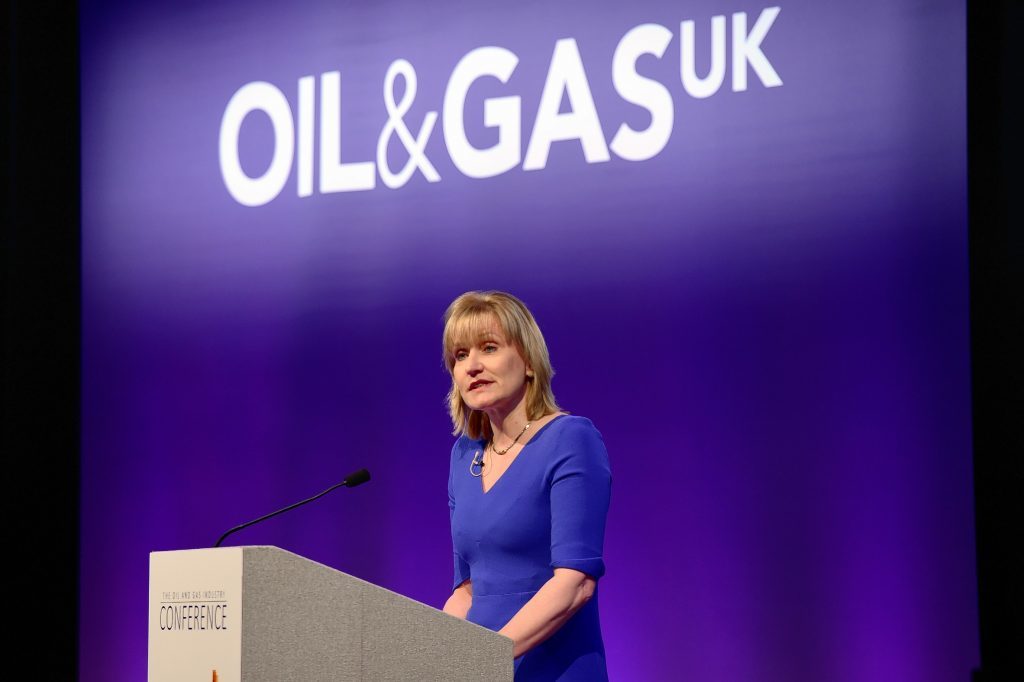
At a time of year when we have an opportunity to reflect, I thought I’d compare the industry mood this year with that of December 2016. Back then we talked about ‘steering our way through a ‘turbulent year’ and ‘surviving the downturn’. However, we’re now seeing the mood begin to lift and we continue to describe the outlook as ‘cautiously optimistic’.
There is increasing evidence that we are rising to the challenge of operating competitively in the maturing UKCS basin. You may recall our 2017 Economic Report highlighted the 16 per cent increase in production and unit operating costs halving between 2014 and 2016 from $30 to around $15 per barrel.
Challenging our mindset to work together towards securing the industry’s long- term future is delivering improvements in our performance. We’re embracing change to enhance the management of our assets, targeting performance in many areas including production optimisation, while always ensuring that safe operations are at the heart of everything we do. Delivery is through the efforts of individual companies as well as through the Efficiency Task Force’s initiatives which are driving sustainable change on a sector-wide scale.
The publication of the 2017 UKCS Upstream Supply Chain Collaboration Survey in December provided further evidence of a behavioural and cultural shift. The collaboration index score rose from 6.6 in 2016 to 7.1 this year, with 95% of the operators and suppliers that took part, saying collaboration is an integral part of their day-to-day business. Through collaboration companies are better able to reduce costs, share knowledge and maximise the economic recovery of the remaining 20 billion barrels from the basin.
As well as changes in mindset, we’ve seen significant improvements in the fiscal regime. In the Autumn Budget, the Chancellor announced a tax measure that will help to support further investment in the UK North Sea. The implementation of transferable tax history will facilitate asset transfer, hopefully stimulate fresh investment in many mature oil and gas fields, extending their productive life and postpone decommissioning, as well as, generating activity for our hard-pressed supply chain.
Looking ahead to 2018, we all have to stay the course in terms of delivering even greater efficiencies. Oil & Gas UK has many resources available to support companies. From the Efficiency Hub to the new Supply Chain Hub – a one-stop gateway to business information, both of which are designed to help companies grow stronger and more competitive.
The Efficiency Task Force is doing great work in promoting and providing access to efficient practices and will continue to run “in company” roadshows to help embed efficiency as the way we do business in the UKCS.
In every reasonable scenario, oil and gas will remain the backbone of the UK’s energy supply for the foreseeable future while still being part of the move to a lower carbon economy and future.
Our role at Oil & Gas UK is to support the UKCS in being globally competitive, so that it can continue to power the nation with secure and affordable primary energy for decades to come.
Deirdre Michie is chief executive of Oil and Gas UK
Recommended for you
